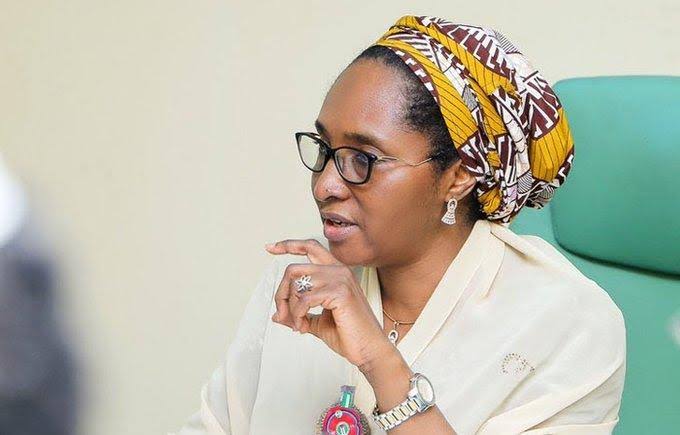As Moody’s Investor Service, an international ratings agency cut Nigeria’s rating down to B3, making the country at par with Angola and Mongolia due to its declining finances, commercial banks and corporates whose ratings are tied to the sovereign rating of the country are also beginning to face possible downgrades.
Moody’s, at the weekend, had issued a statement saying it downgraded Nigeria’s local currency and foreign currency long-term issuer ratings as well as its foreign currency senior unsecured debt ratings to B3 from B2 and placed the country on review for downgrade.
It had also penned down commercial banks such as; First City Monument Bank, Zenith Bank, Guaranty trust Bank Limited, United Bank For Africa, First Bank, Union Bank and Access Bank for possible downgrade.
The rating agency had also put on review for possible downgrade some commercial banks in the country, as it expressed fears that the plans of the country to extend the maturity of some of its debt may result in default.
With Nigeria currently running a budget deficit, spending more than 100 per cent of its retained revenue on servicing loans and planning to run a deficit of more than N10 trillion in the 2023 fiscal year, the minister of Finance, Budget and Planning, Mrs Zainab Ahmed had said the government is considering an extension of its current debts to give the government fiscal space to borrow and finance its spendings.
This had, however, triggered investors as Moody’s said the ongoing fiscal and external weakening could accelerate, hindering the government’s capacity to service debt and thereby increase the nation’s risk of default.
Moody’s, in a statement, said the rating downgrade is driven by the significant deterioration in Nigeria’s government finances as well as its external position, exerting increasing pressure on the sovereign credit profile despite a strong increase in international crude oil prices in 2022.
Its assessment is that “these developments are partly the result of weak governance and likely to last. The steep fall in oil production in 2022 and the extension of the expensive oil subsidy have almost entirely eroded the boost to government revenue and exports that would otherwise have been anticipated from higher oil prices. Policy levers available to manage weaker oil revenue and rising borrowing costs amid monetary tightening in Nigeria and globally are limited. Similarly, on the external front, the capacity of the Central Bank of Nigeria (CBN) to protect foreign exchange reserves from external outflows has its limits.
“The initiation of the review for downgrade is prompted by the risk that the ongoing fiscal and external deterioration accelerates, weakening further the government’s capacity to service debt and thereby increasing further its risk of default. The review will focus on understanding the Nigerian authorities’ strategy to address both domestic and external pressure and assessing the associated default risk for the government’s private creditors.”
The finance minister, while speaking at a debate during the 2022 World Bank/ International Monetary Fund meetings, had publicly stated possible options, consisting of extending the maturity of its debts, including through potential bond buybacks or exchanges, which Moody’s said may constitute a distressed exchange under its default definition.
Concurrently, Moody’s has lowered Nigeria’s local currency (LC) and foreign currency (FC) country ceilings to B1 and B3 respectively, from Ba3 and B2 respectively. The LC country ceiling at B1 remains two notches above the sovereign issuer rating, incorporating some degree of unpredictability of government actions, political risk and the reliance on a single revenue source.
The FC country ceiling at B3 remains two notches below the LC country ceiling, reflecting significant transfer and convertibility risks given the track record of imposition of capital controls in times of low oil prices or falling oil production.
This downgrade will also be affecting corporates whose bonds are tied to the sovereign status of Nigeria as domestically, both the banking sector and CBN have important exposure to the government.
On its rationale for the downgrade and possible further downgrade, Moody’s said, Nigeria’s fiscal and external position hasn’t benefited from higher oil prices in 2022, which have been 42 per cent higher on average than in 2021.
On the fiscal side, the scope for the government to deliver on fiscal consolidation is constrained: Moody’s expects government debt affordability to weaken further in the years to come from already very weak levels.
“Nigeria’s Ministry of Finance has recognised the pressing need to remove the oil subsidy, but its removal from mid-2023 onwards will likely prove difficult politically and to implement in practice. Meanwhile, the generation of non-oil revenue has gradually progressed broadly in line with budget targets but remains far from compensating for the lower oil revenue net of subsidy and higher interest payments. Therefore, Nigeria’s share of revenue consumed by interest payments, which is already exceptionally high in 2022 at 65 per centat the federal government level and 35% at the general government level, is set to rise further. The Minister of Finance recognized in public statements that this budget constraint is a growing source of concern,” it pointed out.
Asides these, it said, Nigeria has a very highly- negative governance profile score (G-5 issuer profile), reflecting weak control of corruption and rule of law as well as very weak fiscal and monetary policy effectiveness and opaque management of public resource.
“Management of oil revenue is particularly weak; absent fiscal stabilizers, the government runs pro-cyclical policy or worse fails to take advantage of high international oil prices as illustrated in 2022. In 2021, the country’s hydrocarbon exports amounted to $41 billion, the general government received only $5 billion in net oil revenue or one per cent of GDP,” it stated.





